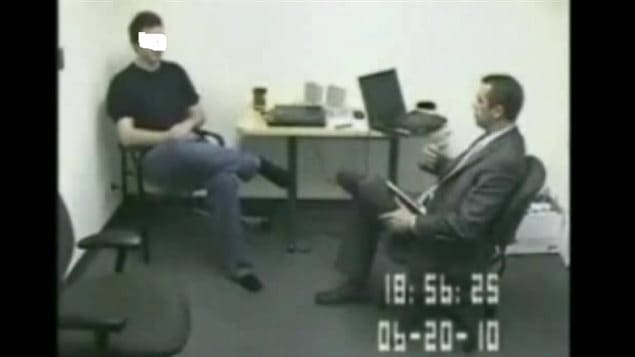In a surprising new study, researchers in Canada and Britain have shown how easily completely innocent people can be guided not only into thinking they committed crimes in their youth, but also in creating detailed memories of those crimes.
Stephen Porter PhD is co-author and guided the study. He is a professor of psychology at the University of British Columbia, a registered forensic psychologist and Director of the Centre for the Advancement of Psychological Science & Law (CAPSL)
Listen
The study called “Constructing Rich False Memories of Committing Crime” was published in the journal Psychological Science.
In the study, some 60 subjects were interviewed about real events in their youth, with facts provided by parents or caregivers, and then using a smattering of other true details, like the name of a childhood friend, or the city or location, the researchers asked them to recall a criminal act the researchers had fabricated.
The results were extremely surprising to all.
No fancy technology, just a few simple questions and three sessions
Though the supposed criminal act was a complete fabrication, 70 percent of the subjects recalled it, and some with astonishing details added, including the act itself, how police officers looked, and parents reactions.
Equally surprising was the relatively short time it took to get subjects to recall and confess to the (non-existent) crime, after only three 40-minute interviews at one week intervals.
The study also showed that students were just as easily persuaded that other events had taken place in their past, such as being attacked by a dog or suffering a personal injury.
In fact Professor Porter says the memories they had guided the subjects to create were so “real” that some had difficulty realizing they had not ever committed the crime, with some vehemently insisting they had.
The results were so surprising and so clearly proved the hypothesis of false memory creation, that the study was halted after 60 students to avoid having the remainder go through the emotional experience
The study confirmed that providing misinformation can lead to “major distortions” in memory, and that asking the subject to visualize the false events seemed to have led them confusing their imagination with reality such that imagining what something “could” have been like can be transformed into what it “would” have been like, and then into what it “was” like.
Professor Porter says the results show that the current police method of interrogation called the REID technique should be handled with caution. It is a widely used technique that presumes guilt at the outset and the police can use a number of stategies, including deception and similar in other ways to the technique used in this study, to elicit confessions.
Although some police have been open to the results which show that people can be easily and quickly guided to remember and confess to things that didn’t happen, others he said, are not so willing, holding on to the belief that no-one would admit to a crime they hadn’t done.
Professor Porter says however, “Once that confession has been generated, the damage has really been done, so we really have to prevent that from happening in the first place.”







For reasons beyond our control, and for an undetermined period of time, our comment section is now closed. However, our social networks remain open to your contributions.